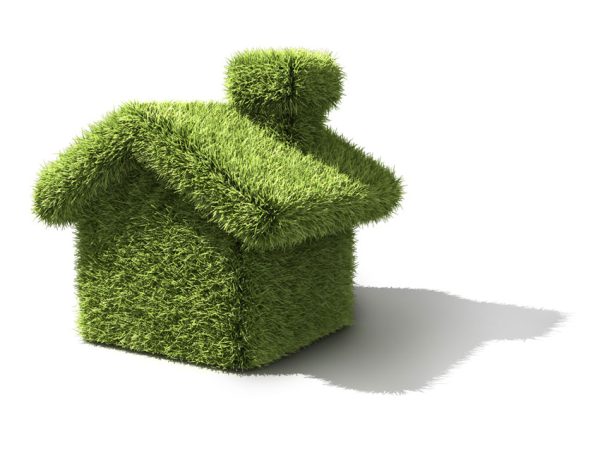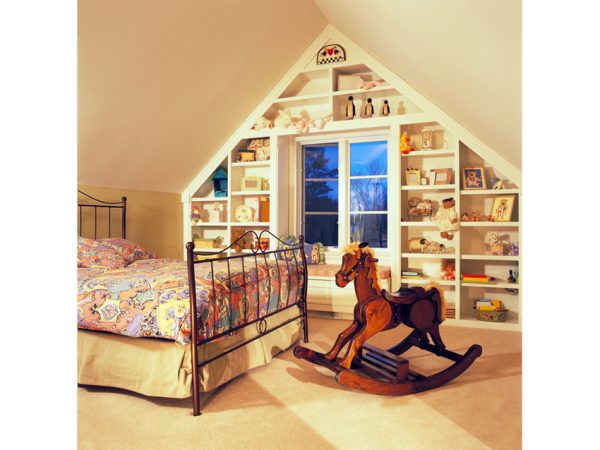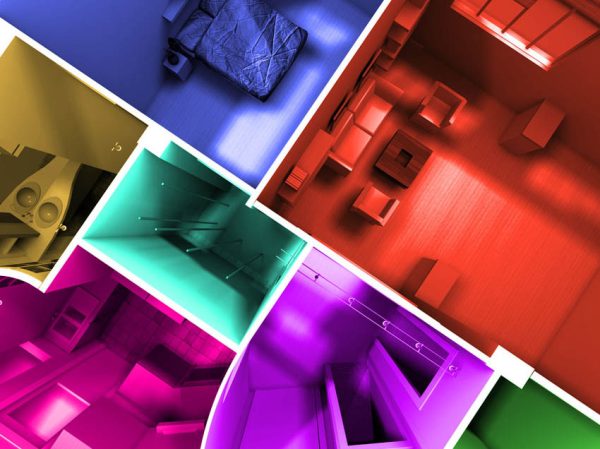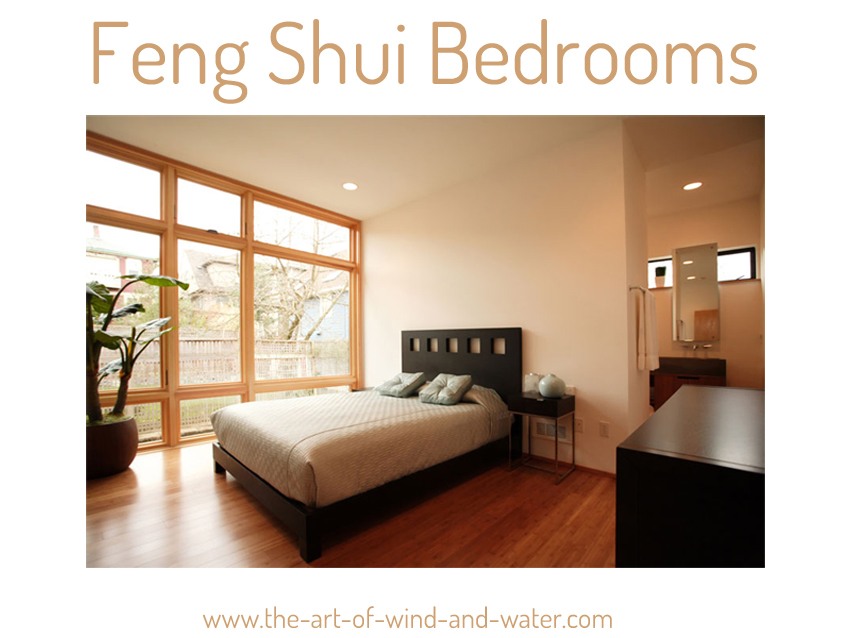
BEDROOMS
INTERIOR FROM FENG SHUI
This is the most important room in Feng Shui as it’s where you spend 6-8 hours per day recovering from life! It’s crucial that this area supports you fully to ensure you get a rested night’s sleep and for the body to rejuvenate. We all know how it feels when sleep is disturbed, leading to fatigue, irritability, run down health, lack of concentration etc.
Bed Position
Ideally a bed should be equally supported on the left-hand side as the right, not squeezed up into the corner of a room blocking one side of the bed. Each side needs equal access without obstruction.
Avoid shelves or units above the bed, as anything that ‘hovers’ over you when asleep could cause restless sleep (similar to beams). Subconsciously you’ll be aware that something has the potential of falling on top of you, this can be overbearing and oppressive. Each bed should have a solid headboard to provide support behind you as you sleep. This helps a restful night as sleeping is the most vulnerable state you can be in.
The bed should be positioned with the head of the bed up against a wall, not a few feet away from the wall or in front of furniture or doors. You are looking for solid backing when you sleep, both with a wall behind you and a solid headboard.
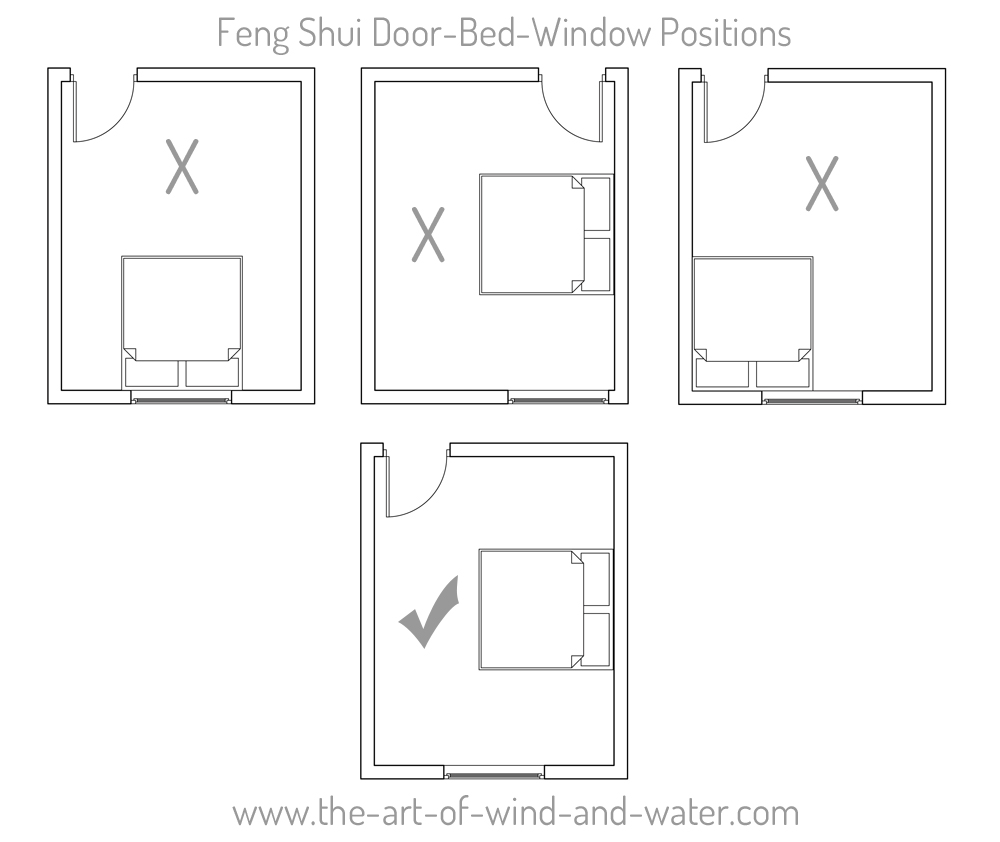
Avoid having the bed in the path between the door and the window, and avoid positioning the bed under the window with the bed head under the window sill. If the room layout doesn’t allow this, ensure your head and torso are not in the path between the door and the window. That said the path crossing over your legs would be ok as a compromise. On a practical level this is to avoid draughts and air currents between the door and window. In Feng Shui, it’s not advised to sleep in the path of Chi between the opes as it causes restless sleep.
Sleeping facing the alignment of the bedroom door is not advisable for a good night’s sleep either, as Chi entering the room directly hits the bed. If you cannot move the bed into another position, use a screen between the door and the bed to dissipate the effects.
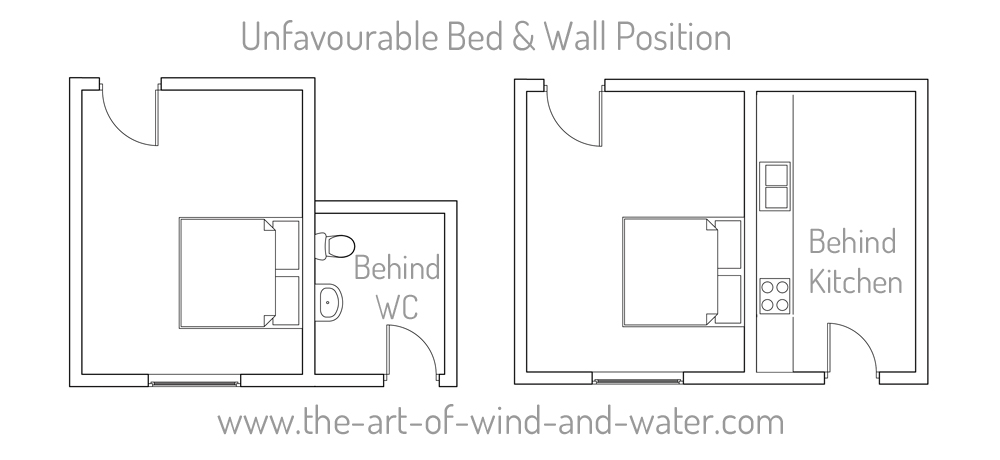
The bed should not receive direct sunlight in the early morning as this would disturb sleep (unless you have black out curtains or blinds). Light pollution can also affect sleep patterns if you keep the curtains or blinds open at night. Any direct glare from street lamps or buildings will upset sleep. Ensure the room is as dark as possible.
Keep the bedroom as organised and free of clutter as possible. Under the bed is a typical clutter haven. To keep fresh air ventilating around the whole bed, make sure there aren’t any obstructions underneath. Any type of bed that is temporary may also cause restless and uncomfortable sleep; mattress on the floor, futon, camp bed, sleeping bag, sofa bed etc. Waterbeds are not advisable as they do not provide a stable surface to sleep on. Electric blankets are also not advisable as they put your body into close proximity with electromagnetic fields whilst you rest.
Sloping Ceilings
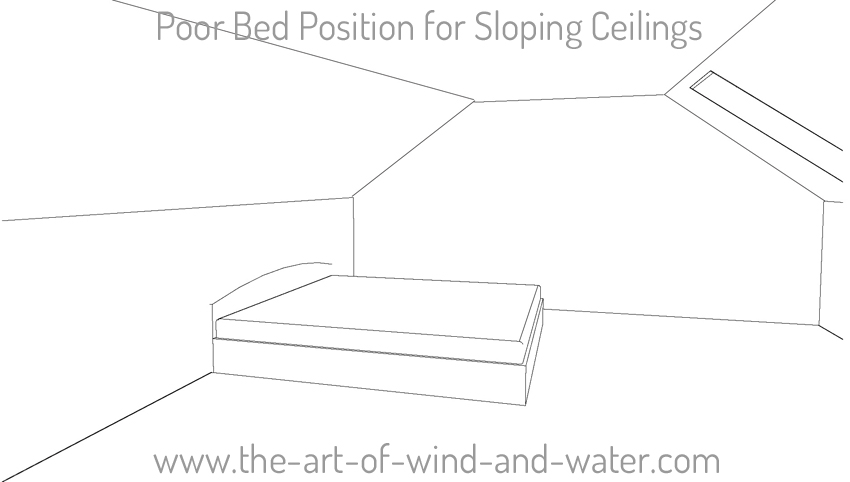
High ceilings are not suited to a bedroom as they do not provide a cosy or intimate feeling. The standard ceiling height is 2400mm. Very low ceilings can feel oppressive and too close as you lie down.
Sloped ceilings or ceilings with different levels can cause you to feel pressurised and lead to restless sleep. If you have no choice but to sleep in a room that has a sloping ceiling, position the head of the bed at the highest end of the ceiling.
Position your bed so that:
- You are not under a window – with your head, side or legs.
- All sides are accessible & not obstructed.
- Can see the door.
- Are not behind the door.
- Can see the window.
- So that your bed is not in alignment between the door and the window.
- You do not have your head up against the wall that has electrical appliances, sinks, WCs, baths or ovens on the other side.
- You do not lie underneath a beam or sloped ceiling.
Room Shape
The shape of the bedroom should be square or rectangle, without any sharp corners, awkward shapes or missing areas. Rooms that are square or rectangle are the Earth Element, which is stable and secure. This is the most beneficial shape for the bedroom, as sleeping is suited to these associations. In Feng Shui this room shape creates balanced Chi, which lessens the effects of any unfavourable Flying Stars. If the form in the bedroom is negative with sharp corners, poor decor, awkward room shape etc, this makes the effects of unfavourable Flying Stars worse.
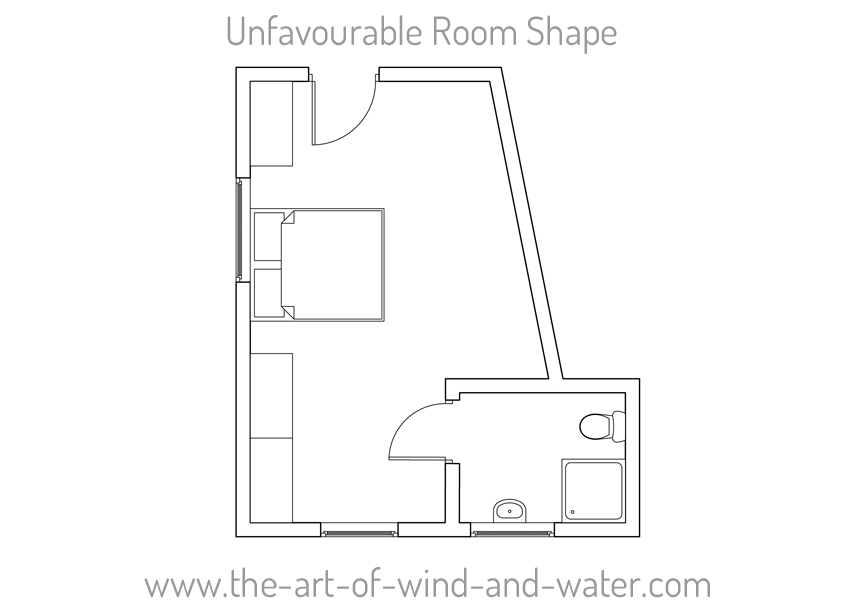
An example of a poorly designed bedroom:
- Awkward shaped room
- Bed with window behind
- Bed in direct alignment between door and window
- Bed with en suite close by
- Protruding corner angled at the bed
- WC faces the door of the en suite
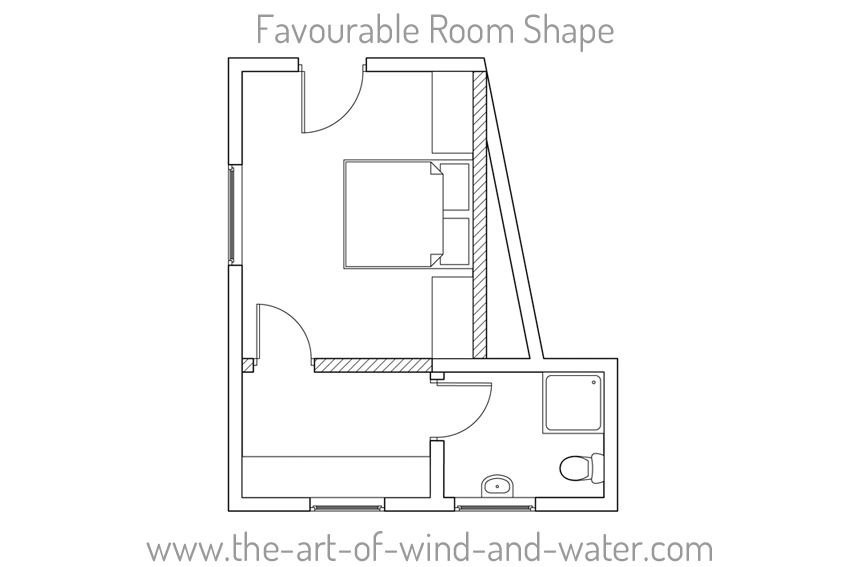
An example of the re-designed bedroom:
- Awkward shape overcome by new false wall
- Bedroom looks out to window
- Bed not in direct alignment between door and window
- En suite is now 1 room away from bedroom
- Protruding corner has been filled in by creating a dressing room with a false wall
- WC relocated to corner to provide privacy
- Overall the use of space is greater giving the illusion of extra space
- The circulation path of the occupants around the room flows much better
- The bedroom has a defined activity, solely used as a bedroom

